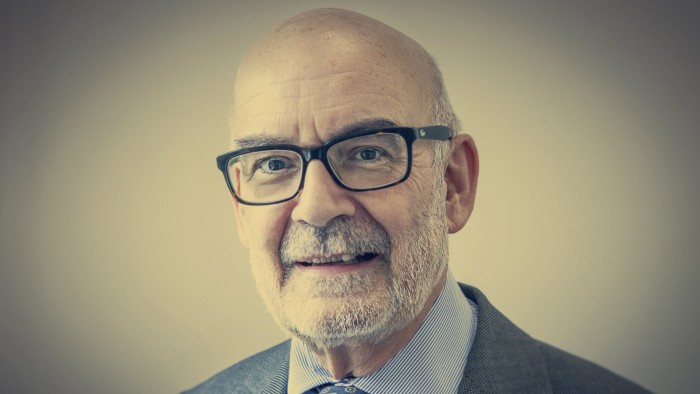Peter Montagnon, journalist and corporate governance expert, 1950-2019

Roula Khalaf, Editor of the FT, selects her favourite stories in this weekly newsletter.
When warring French and Italian camps on the board of eyewear maker EssilorLuxottica reached deadlock this year, small shareholders turned to a bespectacled, bearded Brit to sort things out.
The subsequent nomination of Peter Montagnon as an independent director of the company was evidence of the international regard for the former Financial Times journalist in corporate governance.
Montagnon, who died last week aged 69, was a veteran journalist who became an influential shareholder advocate and policymaker, contributing to a global shift by investors to become more active on governance and more conscious of their responsibilities.
“Peter was a giant of the corporate governance world,” said Huw Evans, director-general of the Association of British Insurers, where Montagnon spent a decade as director of investment affairs.
Montagnon brought to the shareholder community traits that defined his journalistic career: intellectual rigour combined with a mischievous sense of humour and concern for colleagues.
He started in journalism at Reuters after graduating in modern languages from Cambridge university in 1972. He worked in Hong Kong, Zurich and Washington at the news agency before joining the FT where he had an array of senior roles including Head of Lex, World Trade Editor, Asia Editor and head of International Capital Markets.
“Peter was a rare journalist, able to combine deep analysis with a fine nose for a story,” said Lionel Barber, editor of the FT. “He led the FT’s coverage of the 1998 Asian financial crisis and mentored a generation of foreign correspondents who later played a vital role in expanding the FT’s presence in the fastest-growing economic region of the world. He will be sorely missed.”
For many at the FT, “Monty” will be remembered as a kind, patient mentor, shepherding many a young colleague, instilling his enthusiasm for core FT stories in business, finance and markets.
One cites a response to food riots in Jakarta in the Asian financial crisis: “As crazed crowds were torching cars and smashing shop windows, he called, cutting through my excitement with the line, ‘Yes, yes, yes, but what about Pertamina’s oil contracts, what is happening to the oil contracts?’”
His command of a subject was self-evident among peers. In the aftermath of the Latin American debt crisis, a news agency journalist covering the story was asked who was his most important audience. “He went uncharacteristically quiet for a minute before answering ‘I write for Peter Montagnon.’ Such was the esteem in which Peter was held,” said one ex-FT journalist.
Montagnon was also a staunch defender of the interests of his colleagues, speaking out if necessary even it was to his own political cost. One low point came with the murder in 1999 of correspondent Sander Thoenes in Timor by Indonesian soldiers. Then Asia Editor, Montagnon flew out and escorted the body home.
Montagnon left the FT in 2000 to join the ABI at a time when shareholders were under pressure from the government to be more active — and more visible — on corporate governance. He encouraged shareholders to take a more confident stance. One example of his work came after a scandal at Shell over misstatements of oil reserves. He worked with institutions to persuade the oil giant to carry out governance and management changes.
Though Montagnon was a critic of corporate governance box-ticking and over-prescriptive regulation, his active stance was not always welcomed by the captains of UK plc. He would recall how sometimes a chief executive would bang the table to justify a hefty bonus.
In 2007, Montagnon became chairman of the International Corporate Governance Network, a body that represents investors from 45 countries managing some $34tn of assets.
“In many respects Peter was an architect of modern day investor stewardship,” said Kerrie Waring, chief executive of the ICGN. Montagnon led the drafting of ICGN’s stewardship principles in 2003 for shareholders on company monitoring, voting and engagement. This has been emulated in many other markets around the world.
In recent years, Montagnon worked as associate director of the Institute of Business Ethics. He also served as a founder member of the corporate governance advisory board of Norway’s giant $1tn oil fund.
He is survived by his wife Isabel and two children.
Comments